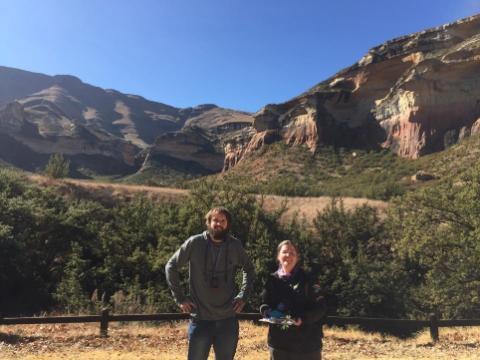
Grant Martin is the manager of the CBC’s newest programme – the Northern Temperate Weeds Programme. The programme was initiated in March 2017 and aims to bring the benefits of biological control to the mountain grasslands of South Africa.
Grasslands are central to the livelihoods and economies for both small-scale, communal farmers and commercial farmers, as well as a number of rural communities, but grasslands are under severe threat from invasive alien plants.In order to develop this programme a collaboration between the CBC and the Afromontane Research Unit (ARU), University of Free State, QwaQwa was developed. The ARU is situated in the Maluti-a-Phofung Local Municipality, one of the poorest municipalities in the Free-State Province, where the majority of the communities in the region directly rely on natural resources for their livelihoods.
The collaboration aims to provide sustainable management solutions for invasive alien plants currently invading the South African Grasslands included in the municipality but also to provide further research opportunities to Zoology, Botany and Entomology undergraduate students graduating from the University. Thus far three Masters students Lehlohonolo Adams (now conducting a PhD), Karabo Moloi and Patricia Masole have been investigating the drivers of invasive alien Rosaceae in these mountain grasslands. It is hoped the information obtained from these studies and similar ones like it will assist in the management of invasive species in the grassland, eventually resulting in a reduction of its impacts on the native ecosystems
In early June this year, Grant relocated from Rhodes University to an office at the Afromontane Research Unit (ARU) at the University of the Free State, to be closer to the study sites of northern temperate weeds. From his base here he is able to conduct regular surveys and do more intensive fieldwork in order to expand the depth and breadth of this programme. Watch this space for more news as this programme expands.
